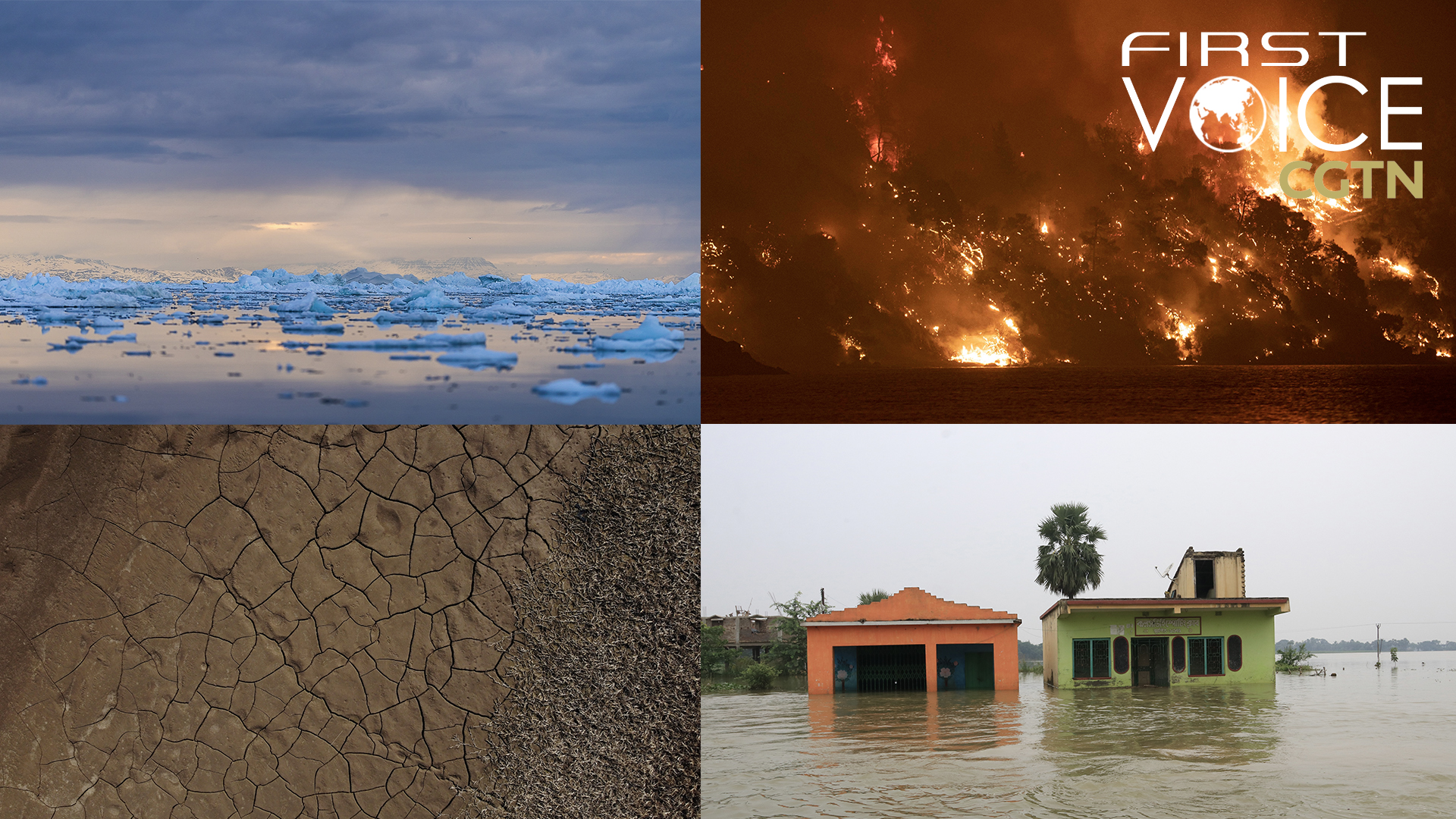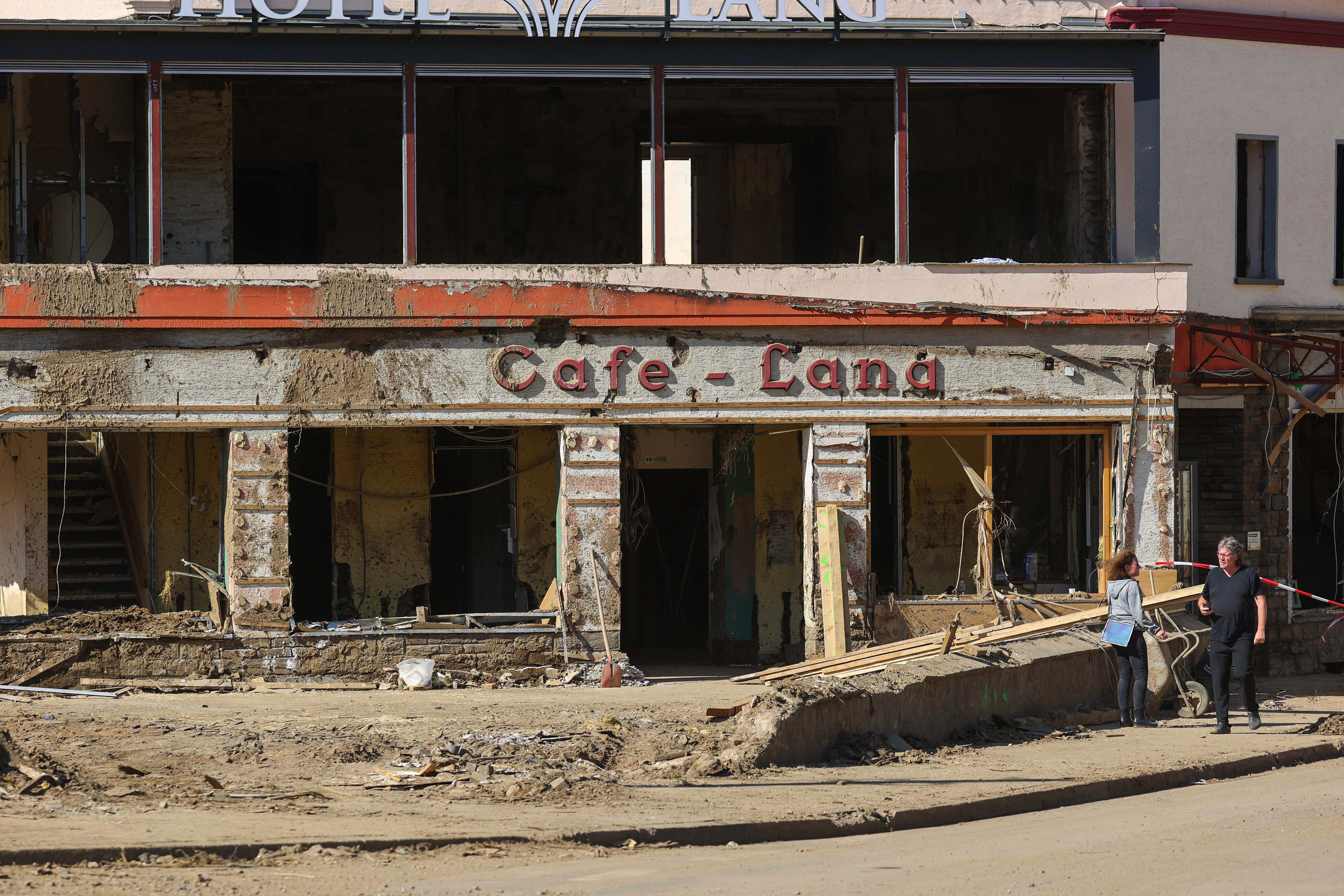
Editor's note: CGTN's First Voice provides instant commentary on breaking stories. The daily column clarifies emerging issues and better defines the news agenda, offering a Chinese perspective on the latest global events.
In 2008, an animated short film called The House of Small Cubes was released, depicting an old man who uses bricks to build his house higher in order to save it from the rising flood waters. As he dived into lower floors in search of his dropped pipe, he was reminded of his lives from the past – a time when his life was still taking place on the vibrant land instead of the flooded desolation.
Back in 2008, what happened in the film might look futuristic. Today, that future is no longer that distant.
On August 9, the United Nations Intergovernmental Panel on Climate Change (IPCC) released its latest report on the climate, stating that within two decades, temperatures could increase to more than 1.5 Celsius above pre-industrial levels, breaching the projection set in the Paris Agreement. Melting of the polar ice, rising sea levels and extreme weathers will create untold a catastrophe that'd impact the entire human race.
According to IPCC scientists, drastic reductions could prevent the worst of the worst, but they wouldn't be returning the Earth to the more moderate weather patterns. The UN secretary-general describes the report as "code red for humanity."
The language is harsh, but perhaps the reality is even harsher. The fight against climate change does face tremendous difficulties. On top of all the hurdles that need to be cleared to get every country to commit resources, we've now seen over the past few years just how easy it is for a minority political stance to capture the entire movement.
Former U.S. President Donald Trump's decision to withdraw from the Paris Agreement wasn't what the majority of American wanted, but it was what many Republicans supported. By 2020, that partisan divide became so polarized that, according to a Pew Research Center poll, 85 percent of Democrats and Democratic-leaning independents think protecting the environment should be a top priority for the government while only 39 percent of Republicans and Republican leaders feel the same.
Even though 63 percent of Americans believe that stricter environment regulations are worth the cost, it wasn't until Joe Biden took office that fighting climate change got on the priority list again.

A destroyed cafe after floods that devastated parts of western Germany, in Altenahr, Germany, July 30, 2021. /Getty
A destroyed cafe after floods that devastated parts of western Germany, in Altenahr, Germany, July 30, 2021. /Getty
The cold, hard truth is: Different country bears different responsibility when it comes to climate change. Large carbon producers like the India, U.S., EU and China have to be resolute in their policies and bear the burden of ensuring that such policies wouldn't be influenced by short-term political wind-shifting. Behavioral changes in large producers will set global progress back on a greater scale and, most importantly, shake other countries' confidence in the international community's ability to truly unit and commit towards a common goal.
Solid actions are needed. China has put climate change at the heart of its 14th Five-Year Plan. The country is aiming to achieve carbon neutrality by 2060. It has launched its carbon emission trading scheme, the largest carbon market globally by volume. The European Union has announced its goal of achieving carbon neutrality by 2050 and released plans to overhaul its own emission trading scheme.
"We're going to ask a lot of our citizens. We're also going to ask a lot of our industries, but we do it for a good cause," said Frans Timmermans, the EU's climate policy chief. Fighting climate change requires sacrifices from everyone. The government has to have the guts to act on it despite the potential backlash it faces and educate the public about the danger of not taking immediate actions.
Climate change is an existential threat for everyone. The doubters could only hang on for so long before they start personally feel the impact of inaction and denial. As the IPCC's report has depicted, if the world doesn't come together and act now, we will soon have to choose between either surviving in small cubes or living on the vast land.
Scriptwriter: Huang Jiyuan
(If you want to contribute and have specific expertise, please contact us at opinions@cgtn.com.)

